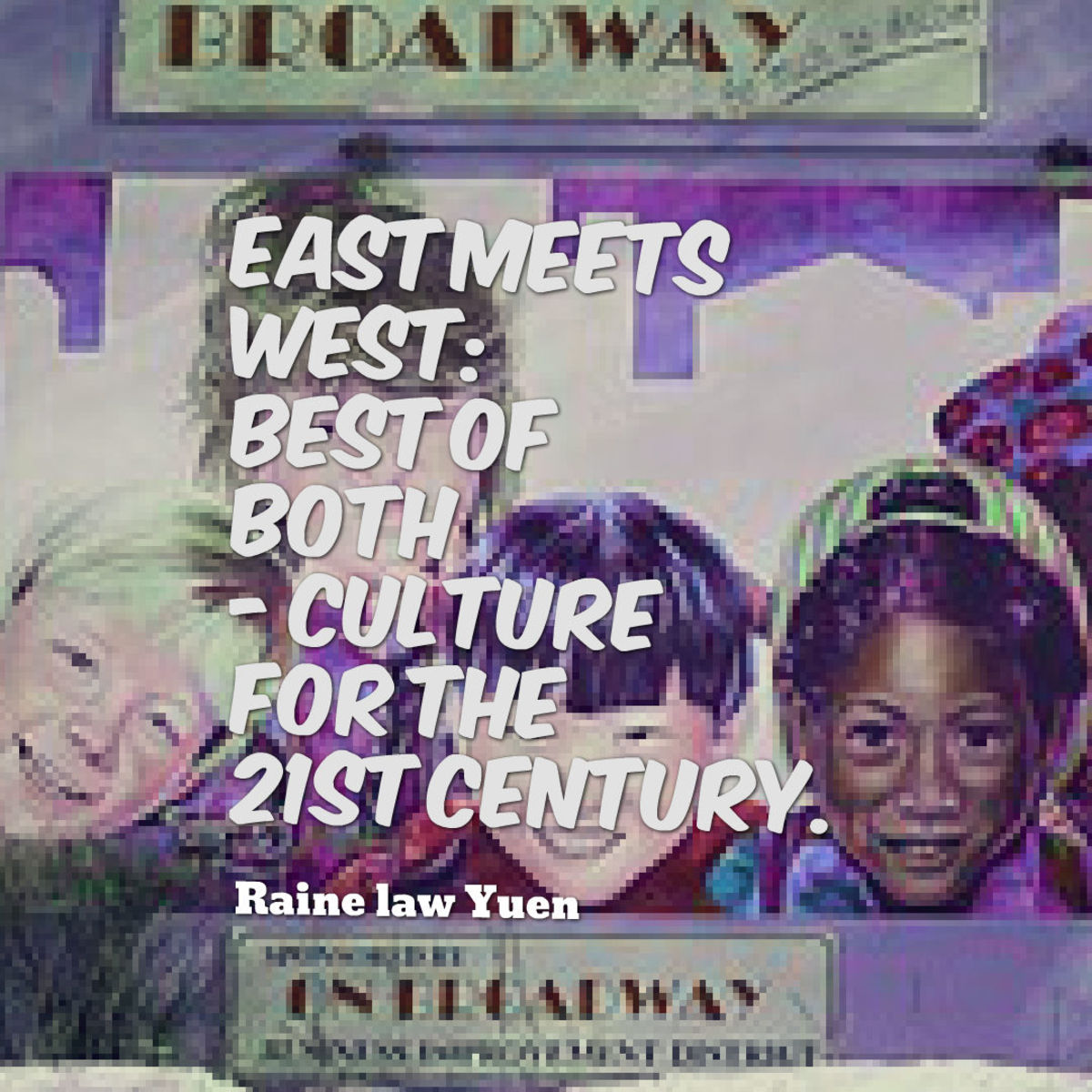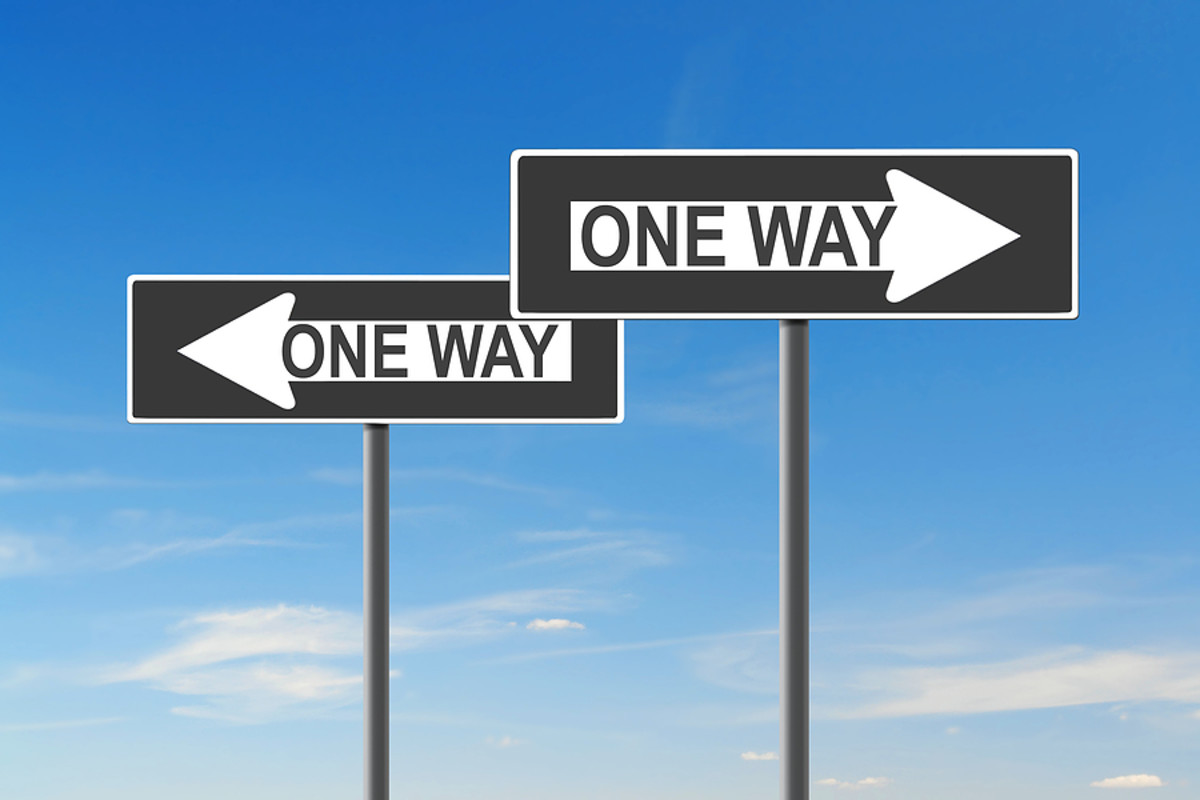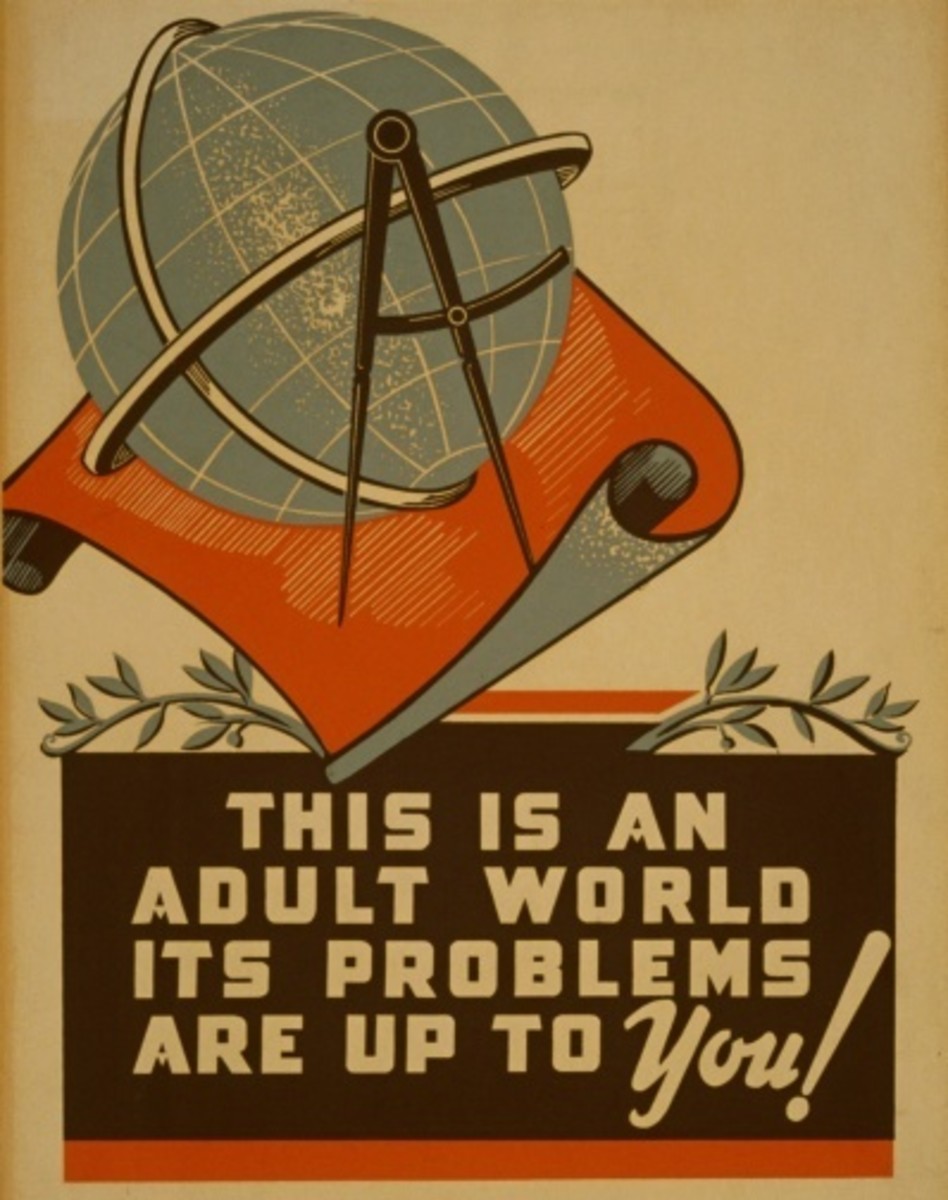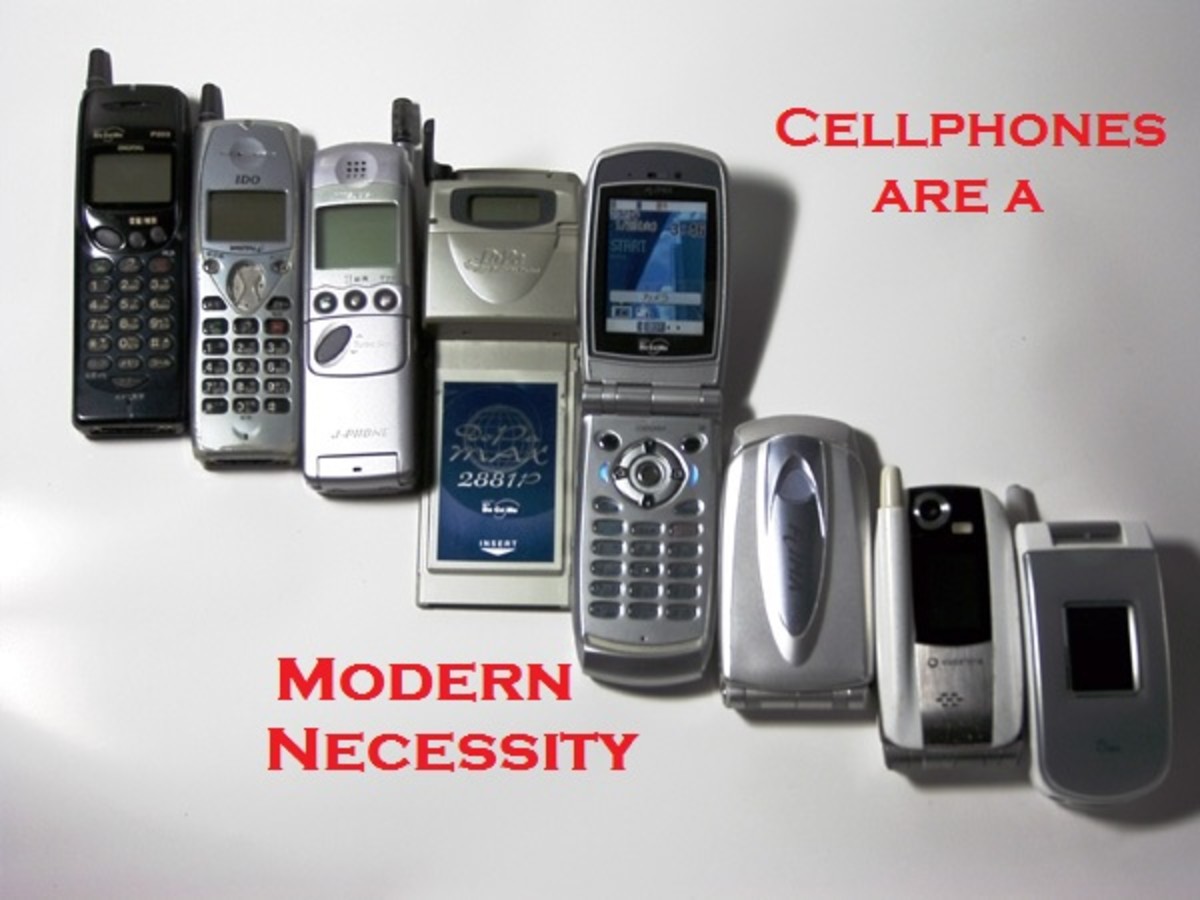To be Tolerant,Intolerant, or Both
Years ago I had a conversation with a friend named Dan, who was self-proclaimed liberal believing in tolerance of all people and that there was no absolute truth. He thought that the only reason the world was fucked up was because institutions like religion warped the ideas of people who understood the truth that the universe doesn’t tell people what to do. When Dan asked my view on that, I pointed out that much of the rationalization for his free-minded beliefs were coming from close-minded sources like the Bible and so on.
He vehemently argued that wasn’t the case and I finally asked if the universe had its own will, what would happen if it decided to tell others the right path instead of being completely tolerant. My friend refuted that such a concept even existed and I concluded that his beliefs were then as warped and controlling as those he attacked. Dan found the idea against the concept of tolerance and that was the last I saw of him.
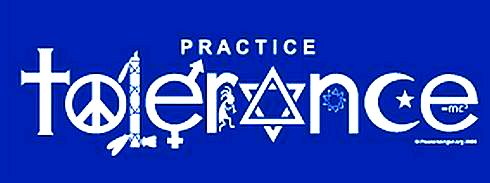
Verbal TNT
Tolerance and intolerance is one of our society’s most toxic and loaded words. It is synonymous with racism, homophobia, sexism, and every other form of prejudice known in our language. But while the social ills under its tent are very much real, I wonder too if it has become too easily tossed around and used to justify other evils, like calling someone a ‘terrorist’.
Technically, all intolerance means is the unwillingness to accept another’s beliefs, behavior, culture, or anything else different from our own personal views. It is used in tandem with the word, tolerance, which is the exact polar opposite of that. In popular culture, it became a catch phrase in the 1990’s when political correctness, or ‘pc’, was a thing among that generation’s youth.
We were groomed in the mistakes of the past, and that we all needed to learn to accept each other’s differences rather than repeat them. That philosophy has been around since the 1960’s. However, tolerance/intolerance took on a more aggressive and angry tone. It was a voice that did not asked but demanded respect. Many say it even demands the eradication of anything falling under that banner.
As each younger generation grew up among an increasingly more diverse demographic, older ideas that seemed to oppress those people whom they were raised with were viewed with hostility. Because of the tandem association with youth, tolerance is regarded as a liberal and progressive movement. By default then, intolerance fell on older generations or those who held to older ideas or were protective of conservative values.
The irony is when those wanting tolerance for the oppressed, then themselves become intolerant of those who are intolerant. Celebrities can lose their careers saying the wrong things or calling someone names that generations ago were perfectly acceptable, at least to the majority of the populace. Politicians who get stuck with the label find themselves under a heavier barrage than the normal because they are compared to Adolf Hitler and the Nazi party. Other cultures who have practiced more conservative values for centuries like in the Middle East find themselves judged as barbaric and unprogressive. And of course, there is no shortage of Twitter and Facebook feuds about what can and cant be said, along with the slinging of insults to ‘fuck off’.
Tolerating the Intolerable
This is one of two inherent problems with the idea of intolerance/tolerance: its vague terminology. Those who take up its sword believe it to cut one way because they are working on the side of angels. Anyone’s values who don’t agree with your own can easily fall under its blade, but the problem is that it does not have a definitive value. There is no one specific meaning that clearly places tolerance on one side or the other.
This can be seen in the claim from conservatives saying that those claiming to fight for tolerance have become what they hated by trying to shut down any public or loud voice that isn’t their own. Late comedian, George Carlin, ranted on how he felt pc language was wrong because of their insistence on changing the language to be nicer or not as harsh, like ‘handicapped’ or ‘ugly’. To be sure, acts of intolerance has historically been enacted most by groups holding more conservative views, so there is a strong basis for the association. But this then leads into the second problem with the term.
Henry Rollins in his LA Weekly column about police brutality and the Black Lives Matter movement said how human beings are by nature intolerant. We do not seek to get along with others, we don’t seek to understand or love those who are different, and we don’t like to discuss issues with those of opposing views. And unfortunately I agree with this.
Intolerance is a natural, animal instinct. It can be taught only when turning it into a systematic structure. The tendency itself though doesn’t need teaching, because everyone in their own mind is the hero. Any shared or equivalent responsibility that the party has is forgotten or shunted aside.
Late comedian George Calin was well known for speaking out against status quo values, but the targets were usually conservative or religous
Grasping at Sunlight
This then begs the question is intolerance inevitable and tolerance just a mirage?
To answer that question you must first acknowledge the limitations and myths of tolerance. The first was already alluded to, the hero in one’s own mind and avoiding of shared responsibility. The second point is that objectively speaking, a society will not find all behaviors tolerable and in many cases, intolerances in accepted despite preaching contrary.
In ancient Japan, a samurai who felt insulted by a commoner could cut off his head, only having to answer to the local lord as to why. Not acceptable now because that’s murder. In many Polynesian societies, sex between multiple partners could be a common occurrence. Not so acceptable now as a promoted social norm. In the 1920’s you could say ‘nigger’ and not be looked at any different. Same for the term ‘faggot’, in the 1980’s. Now neither is acceptable. Some of these seem entirely correct, while others are more grey.
"The road to hell is paved with good intentions"
— St. Bernard of ClairauxGetting it Right
We were raised in the idea that tolerance meant acceptance for all. That when we have it, everyone gets along and prejudice is a thing of the past and it’s something everyone wants or should want. Tolerance/intolerance as we know it today arose out of a desire to do right by everyone.
Yet in practice it has been more like Game of Thrones, with several ideas about what is acceptable competing for the honor of the reigning social morality. Ideally, everyone wants to get along, but when one’s personal investment is at stake, right or wrong, then it becomes about dominance: even if just to protect yourself. It’s just that it got caught up in the mess that is the human Id.
Wants and desires will bend any logic to one side or the other, and only the most honest and sacrificial of us ever really achieve a true balance. So in that since, no, we won’t ever be free of intolerance.
However, there is still something to be said for tolerance. While differing groups will have their views, if they can agree to respect each other’s position without dominating each other or fear there of , then some measure of tolerance can be attained. There maybe some stepping on of toes here and there, but as long as it’s nothing too deep, it’s ok.
When it comes to these ambiguous terms, the best state to be in with them that is achievable is a balance of both. Ideally establishing boundaries that allow personal life choices, but not at the expense of someone else’s dignity and choices, even when we don’t like them.
A simple concept, which also explains its difficulty. Because human nature wants security for itself, and that comes naturally through control. So tolerance and intolerance exemplify one of the truths of the human experience: wanting the best of us while at the same time being the worst of us without realizing it.


